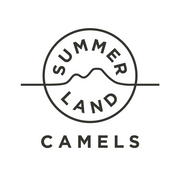Camel Milk and Autism
We are frequently asked if there is any benefit in using camel milk or reconstituted camel milk powder to deal with the symptoms of autism. You may have seen articles and advertisements from other countries touting the medicinal effects of camel milk in this area, with some going so far as to claim a cure. In Australia, we have much higher standards of proof, and our health authorities are vigilant when it comes to such claims as unfortunately, autism is one of those areas where unscrupulous opportunists can take advantage of those desperately seeking a cure or alleviation of symptoms.
So here is what the research is showing so far ...
In 2013, researchers from the King Saud University, Riyadh, Saudi Arabia published an article in the journal Evidence-based Complementary and Alternative Medicine, a New York publication. In their study, “Camel Milk as a Potential Therapy as an Antioxidant in Autism Spectrum Disorder (ASD)[i]” the researchers were looking firstly at the significant role that oxidative stress played in the cause and effects of neurological diseases, including autism spectrum disorder. They then measured the effect of camel milk consumption on oxidative stress biomarkers[ii] in autistic children. All their measured parameters showed positive change after camel milk consumption, including behavioural measurement using the improved Childhood Autism Rating Scale.
Christina M Adams, author of the book “Camel Crazy” spent years as an advocate and educator for parents of children with learning or developmental disabilities, specialising in autism and related disorders. Her article “Patient Report: Autism Spectrum Disorder Treated with Camel Milk[iii]” was published by the peer-reviewed US journal Global Advances in Health and Medicine in 2013. The journal editors note that the report was published to provide clinicians with valuable observations and assessments on the effectiveness and safety of camel’s milk.
A report in the Journal of Taibah University Medical Sciences (2016) titled “The unique medicinal properties of camel products: A review of the scientific evidence[iv]” found that that camel milk mitigated autism symptoms or caused great improvements in basic symptoms by, for example, rendering patients less destructive or improving their emotional expression and communication.
In 2021, a report from the Sabzevar University of Medical Sciences, Iran was published in the peer-reviewed Journal of Fasting and Health. It was titled “Effects of camel milk on antioxidant activity in rats with valproic acid-induced autism[v]”. As suggested by the title, the researchers artificially induced autism in rats using a technique called VPA (injection of valproic acid). They found that consumption of camel milk recovered the rats from the VPA-induced social interaction impairment and from repetitive behaviours. Again, the research pointed to the antioxidant effects of camel milk, and interestingly found that pasteurised camel milk had a more significant positive effect.
In their paper titled “Nutritional and therapeutic perspectives of camel milk and its protein hydrolysates: a review on versatile biofunctional properties[vi]”, researchers from the Tehran University of Medical Sciences, Iran, found that fermented camel milk was a promising biological treatment source with antiallergic and anti-autism effects. This was due to the milk’s suppression of the oxidative stresses associated with diabetes, hypertension and with behavioural symptoms of children with autism spectrum disorder.
Famously, in 2016, Australian consumer magazine Choice awarded a “Shonky Award” to a camel dairy in Victoria for claiming that camel milk cured autism[vii]. Australian Food Regulators are very careful with “permissible food health claims” and claiming cures for diseases is a particular area of concern, likewise the FDA has taken action in the US against proponents of raw camel milk[viii]. The above articles all point to beneficial effects on behaviour and other symptoms, never a “cure”. Additionally, there is yet to be any scientific research published on this topic by an Australian University (or an overseas research organisation acceptable to the Australian regulators).
At Summer Land Camels we are supplying milk to and working with a number of universities on several different projects relating to the benefits of camel milk and are confident that as time goes on we will understand more about the biological processes through which camel milk can support human health.
[i] AL-Ayadhi, LY & Elamin, NE 2013, ‘Camel Milk as a Potential Therapy as an Antioxidant in Autism Spectrum Disorder (ASD)’, Evidence-based complementary and alternative medicine, vol. 2013, pp. 602834–8.
[ii] A biomarker is a naturally occurring molecule, gene, or characteristic by which a particular disease or process can be identified.
[iii] Adams, CM 2013, ‘Patient Report: Autism Spectrum Disorder Treated with Camel Milk’, Global advances in health and medicine, vol. 2, no. 6, pp. 78–80.
[iv] Abdel Galil M. Abdel Gader, Abdulqader A. Alhaider, The unique medicinal properties of camel products: A review of the scientific evidence, Journal of Taibah University Medical Sciences, Volume 11, Issue 2, 2016, Pages 98-103,
[v] Sahar Heydari et al. 2021, ‘Effects of Camel Milk on Antioxidant Activity in Rats with Valproic Acid-induced Autism’, Journal of fasting and health, vol. 9, no. 2, pp. 160–170.
[vi] Anahita Izadi, Leila Khedmat, Sayed Yousef Mojtahedi, Nutritional and therapeutic perspectives of camel milk and its protein hydrolysates: A review on versatile biofunctional properties, Journal of Functional Foods, Volume 60, 2019, 103441
[vii] https://www.choice.com.au/shonky-awards/hall-of-shame/shonkys-2016/camel-milk-victoria
[viii] https://www.foodsafetynews.com/2017/01/network-of-raw-camel-milk-operations-spurs-fda-warnings/



